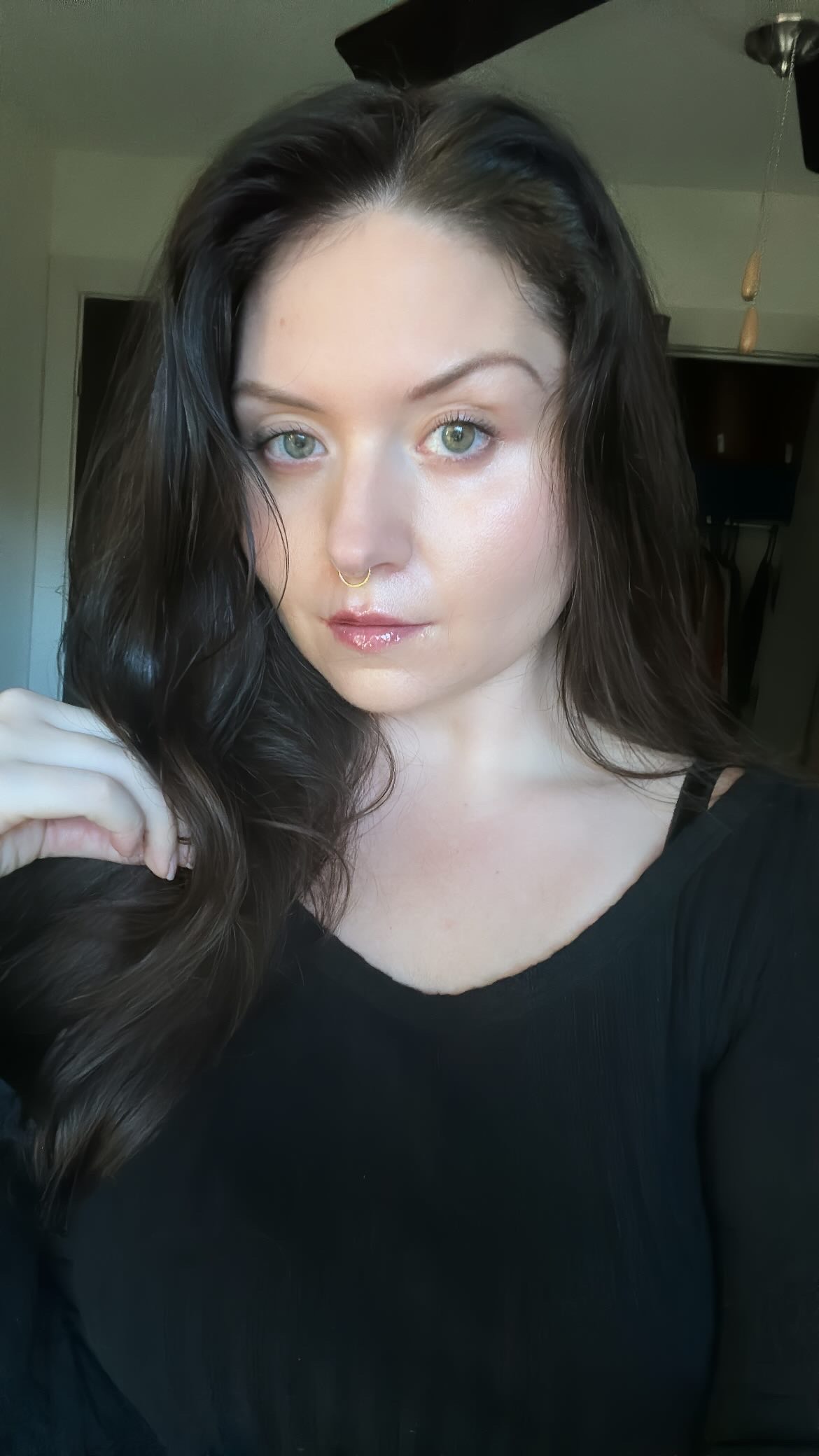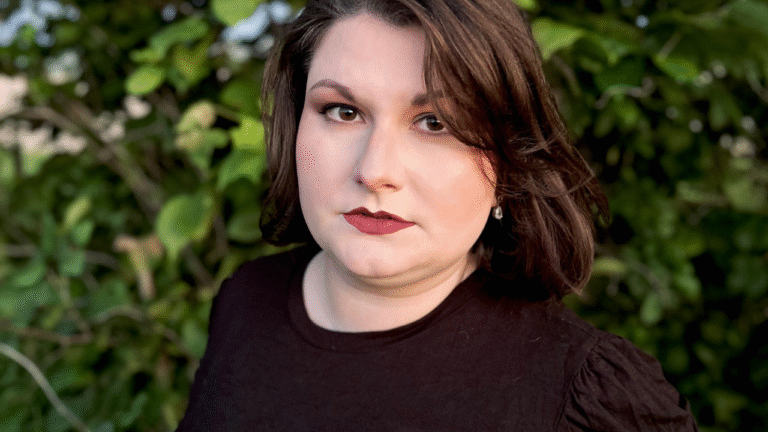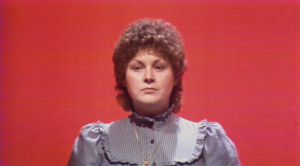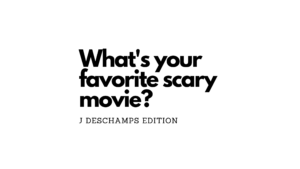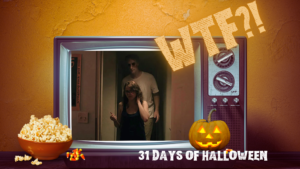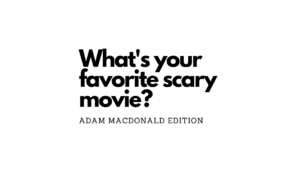Jamie Kirsten Howard recently sat down with filmmaker Jamie Alvey to discuss her movies that upset all the right people. They chat about her career and America’s refusal to grieve, among so many other things. Read the full interview and keep an eye on Jamie Alvey’s website to see what’s next for her.
Jamie Kirsten Howard: Okay, so I definitely want to talk about quite a few things. To get us started: what made you realize you wanted to do film and to make movies?
Jamie Alvey: When I was about 13 or 14, what really got me started – I’d always loved film, I’d always wanted to act. When I started thinking about writing, it was really from watching Ginger Snaps on loop every day after school. I think it’s so funny now, looking back. People are like, “You’ve been autistic this whole time,” and I’m like, “Yeah.” If I really like a movie, I can watch it over and over and over—and a television show, the same way. It was really just Ginger Snaps that got it started because I was like, I know I want to do horror.
Then Jennifer’s Body came out, and I was like, I have to see this. My mom and dad took me to the theater to watch Jennifer’s Body. My mom has rode so hard for Jennifer’s Body with me from the start. Having that influence, I was like, you know what? I want to be Diablo Cody. I want to be Karyn Kusama.
A little bit later, when I was in college, I was flipping through Netflix and watched Mike Flanagan’s Absentia. I was like, oh my god, this is what I want to do with my life. That movie was made for $75,000. Oculus was already out at that point, and I watched Oculus and cried because the end of it was so frustrating. It’s an amazing movie, but you’re just so emotionally strung out at that point that you’re crying angry tears.
People say Mike’s stuff is so soft or overly emotional. However, it’s super emotionally involved, and then it punches you in the face. I loved that it wasn’t afraid to be a little mean. I was like, you know what? I’m going to keep up with this guy. Those were really the pinpoints in my life where I thought, “I think I know what I want to do with this whole trajectory of my being.”
Then I graduated college. There was a lot happening, and I was trying to figure out what my next steps were going to be. I graduated in May, and then by September or October of that year, Bystanders took root. The couple years prior, the Brock Turner case was everywhere. It was his father’s statement that pissed me off to the point where I thought, “Okay, let’s put this anger somewhere.”
I was also dealing with a lot of emotional weirdness on my own part because I realized that if you look at everything I’ve ever written, there’s always an external force influencing it—something on a societal level—but there’s also some weird, emotionally autobiographical force there. I’d been groped while acting in college, and I hadn’t quite realized how traumatic it was, the delayed processing and everything.
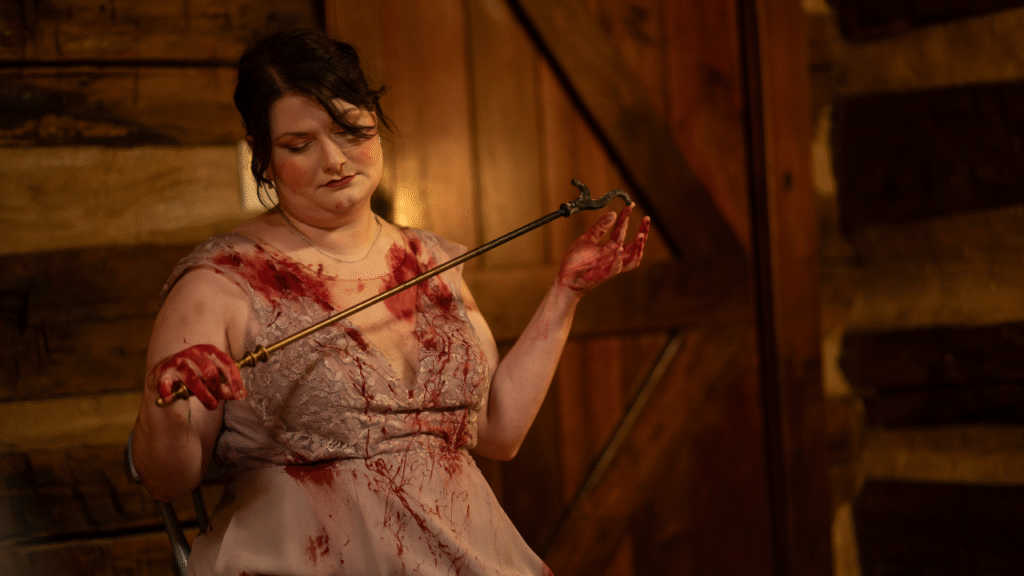
JKH: I’ve been there, delayed processing.
Jamie Alvey: And it finally did come to a head when my therapist said, “Jamie, you were sexually assaulted.” It was really something to hear someone else say it. It was something that had me on edge for years, and that was part of me working through it.
I’ve always wanted to make film. I’ve always wanted to write a screenplay. While researching grad school programs, I wrote the first draft of Bystanders. Until then, I was mainly a prose writer, and yes, I did write horror. It’s always been horror. One of my friends from college literally found me in the hall and said, “You bitch!” because I’d killed a character off in something I wrote. And I thought, “She’s gonna love Your Husband Was a Good Man”.
JKH: Wow, that’s quite a lot to undertake at once.
Jamie Alvey: It is. It was a lot of sitting up late at night with a lot of my own thoughts. That’s scary enough because anybody who’s seen it knows. There was even one user review on Letterboxd that said, “Who thinks of this? Like, who even comes up with something like this?” And I was like, “Me. It’s me.”
JKH: Do you find that other fellow victims of sexual assault often get told that about their creative pursuits?
Jamie Alvey: Yeah. There’s always a man somewhere, and sometimes a woman, who says, “Who even thinks about this? Why do people write about this? We need more positivity.” Like they’re moving the goalposts. They’ll say, “There’s so much of this in the real world,” and I’m like, “Yes, there is, but we don’t face it there either.” There’s a time for art to be escapist, and that’s important. There’s also a time to take stuff to task, and that’s always been fiction. That’s always been media. What we’re consuming reflects what’s around us. The push for more escapist art that doesn’t challenge us is detrimental. You can find escapist art, but sometimes that’s not what you need. Sometimes, when everything is going wrong in the world, that’s what you need the most.
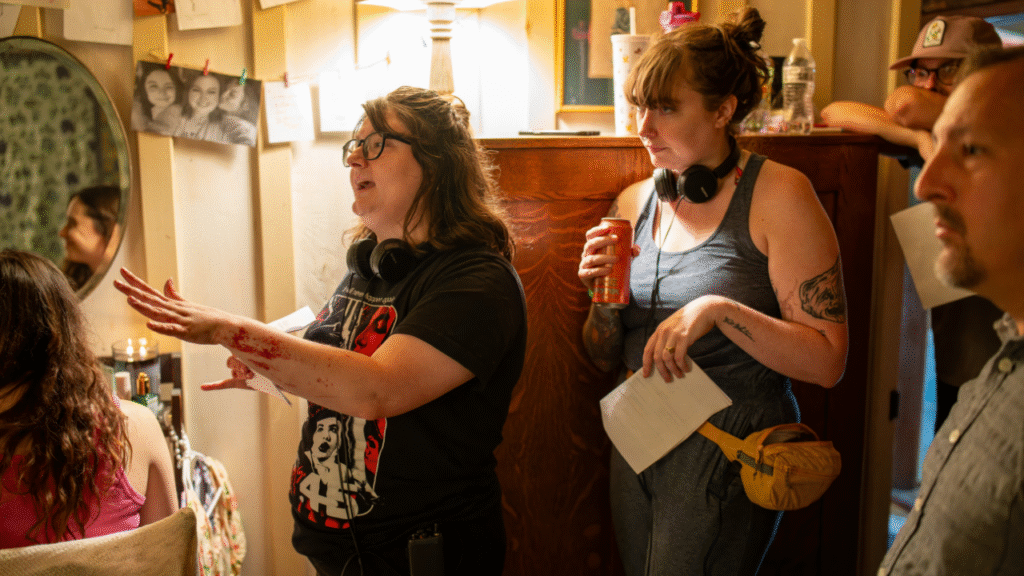
JKH: That’s so true!
Jamie Alvey: One of my professors…because I’m getting another master’s because there’s something wrong with me. It’s the autism. [laughs] I love learning. I’m always gonna be like, “Yeah, let’s do a class. Let’s do a workshop.” Anyway, I was in a horror-based MFA class, and the professor said, “Yeah, I’ve been turning to darker stuff because of the state of the world right now.” He was like, “I’ve been watching Come and See.” And I thought, “Okay, you are in the trenches with the rest of us.” It’s funny, because Bystanders started when Trump was running for President for the first time, and it came out the day after his second inauguration. It felt weirdly cosmically aligned.
JKH: 100%. That’s what I was gonna say.
Jamie Alvey: I felt like we needed something that was blunt. I wanted to be on the nose if I had to. Some people still get obtuse about art that makes them think. People say you should make it more positive, and I just think, “Write your own shit.” Write like that. If it inspires you, go do it. I feel like people get too focused on the idea that one piece of media is the be-all, end-all of a genre. A lot of people brought up Promising Young Woman like it’s the definitive rape-revenge movie. If I wanted to write a movie about women giving men lectures and then letting them kill them, I would. However, I don’t think that’s the be-all, end-all. It’s been interesting to watch.
JKH: Agreed. Well, that leads to my next question, actually. Are you still processing the audience of Bystanders, especially given the recent attention on TikTok?
Jamie Alvey: Yeah. The audience for Bystanders…I always knew it had an audience. My parents are proof that [the] audience exists. My mom had me watching horror movies with her as a preteen. Meanwhile, my dad is the weirdest man ever, but has some of the strongest media literacy skills of anyone I know. He’s always engaged with film on a deeper, more considerate level. He’d shown me movies like Last House on the Left and I Spit on Your Grave.
My father’s the complete opposite of the men online who sometimes miss the point. I once showed him Black Christmas (2019) without context and then told him the online reaction. He was like, “What’s wrong with them? Why are people upset about rapists getting killed?” And I thought, “That’s the audience.” My mom said the first time she read Bystanders, “This is your Last House on the Left,” and I thought, “Yeah, that’s what it is.”
JKH: I love that comparison, I feel like it’s mentioned in some reviews.
Jamie Alvey: Reviews have mostly been positive, but there’s always some guy on Letterboxd going, “I don’t know who this was for.” They’re still trying to say they support women. It’s that perfect victim thing. Society wants survivors to be perfect victims—contrived, sad, and easy to digest. We, as a country, don’t confront grief well at all. We don’t sit with our dead, or our trauma, or our past. A lot of people discovering Bystanders or Your Husband Was a Good Man are seeing a less polished version of retaliation for the first time. Even Jennifer’s Body has a sheen to it, you know?
JKH: And that rawness makes people uncomfortable.
Jamie Alvey: Exactly. The right people will be uncomfortable with it, and they’ll wrestle with it, and get more out of it. Some people let their discomfort rule everything. America’s terrible at sitting with discomfort. We equate discomfort to harm. The bastardization of “trigger warnings” and therapy-speak has really messed things up.
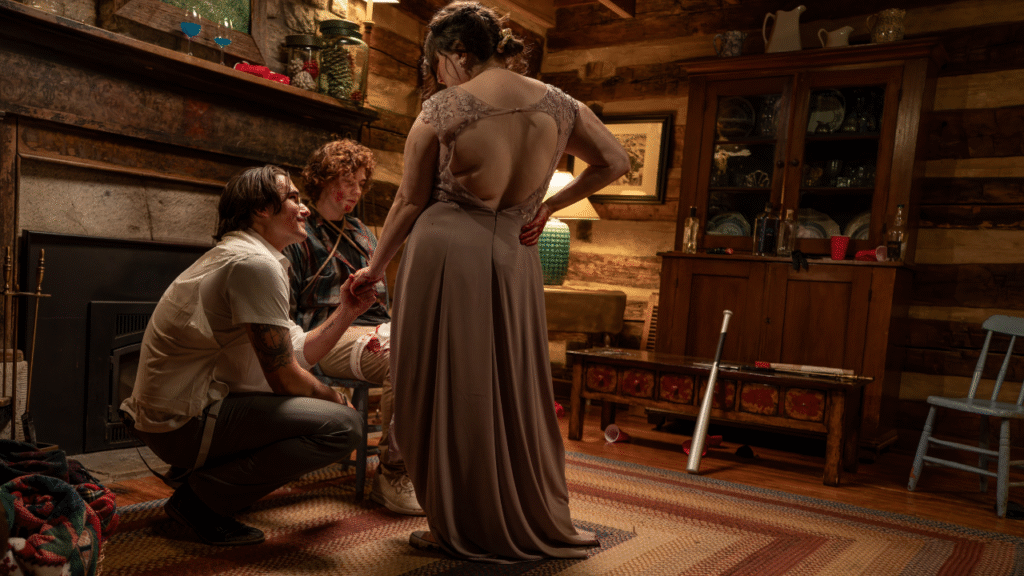
JKH: 100%. The bastardization of therapy-speak, in general, will be my mental undoing.
Jamie Alvey: Yeah, I’ve had moments like that too, where I’m just sitting there thinking, “You don’t know what you’re talking about—shut up.” It makes me angry.
JKH: Well, I know obviously there’s been some surprising audience reactions, but what’s something that surprised you about your creative process?
Jamie Alvey: One thing that really surprised me is how much I actually like it. Usually, during pre-production, I’m the world’s most nervous damn person, but once I’m on set, I’m dead calm. Usually, I’m a mess, but I didn’t even pick at my nails. I was like, “What is happening?”
JKH: To me, that goes back to what we were talking about—how America doesn’t sit with discomfort—because I think you were processing the discomfort instead of somatically taking it out on yourself.
Jamie Alvey: Yeah, exactly. I was so in tune with myself and even more in tune with other actors. Everyone always asks about (the characters) Clare and Gray, whether that was difficult. That was scary. I was worried I wouldn’t be able to pull it off. Everyone told me, “Jamie, you actually have chemistry.” That was scary because, after that trauma, I didn’t act with men for years. I didn’t trust them. And here I had to allow myself to trust this man enough to act opposite him…and it worked. I think it proved to me that I could do that again. That I could trust men on a trial basis, at least. That was so healing.
JKH: First of all, I get it. Secondly, you just answered my next question, which was: What do you think collaborating has taught you? I think that is an answer you would get from a lot of actors and creatives: trust.
Jamie Alvey: Yeah, getting down to the core of it. On a crew level, I usually trust everybody 100%—my crew is my crew. However, when you’re acting with someone in an emotional scene, it’s a pressure cooker that expedites everything. One minute, you’re strangers, and the next minute you’re sweating to death in a car, kissing. We even had a kiss scene that got cut. [It was] me and Garrett in bed and that was day one! I had to trust him enough to let him into my personal space, and that was terrifying. It was like giving him the power to hurt me and hoping he wouldn’t.
JKH: That’s a lot of creative partnerships too. I’m about to show you a very intimate part of myself, the creative process. That’s why I love that this experience has made you a more confident creator.
Jamie Alvey: It’s perfect. I had shrunk into myself for so long, but that gave me permission to bloom.
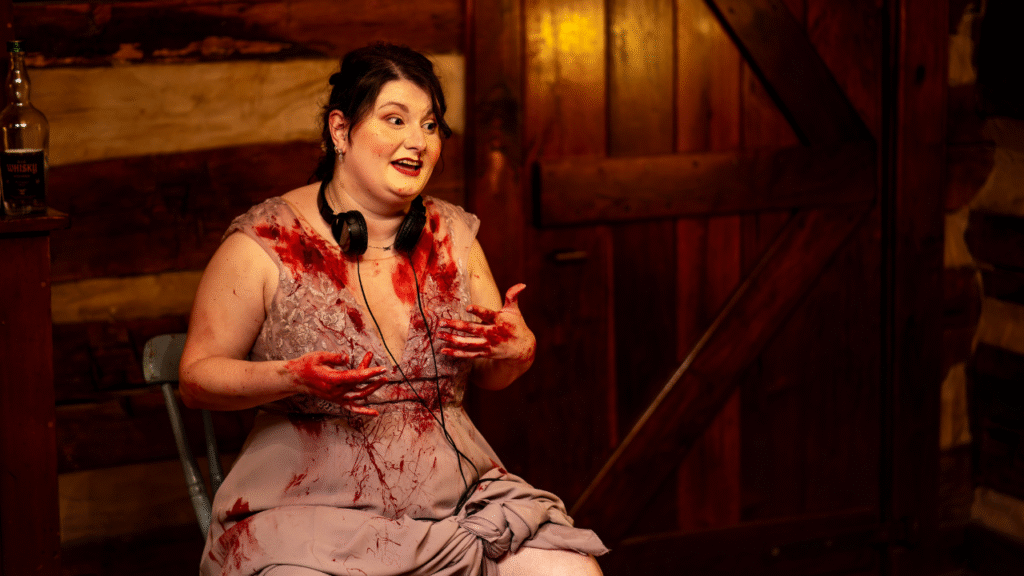
JKH: It’s so, so inspiring to watch. That’s why I was going to ask you: What’s your biggest inspiration right now?
Jamie Alvey: Right now, it’s been parsing through my own feelings, especially weird stuff in my personal life. I wrote an entire short that’s basically an allegory for the female experience and desire, specifically through an autistic lens. How everything is like, “It’s fine, but this isn’t for you.” It’s fine for everyone else, but it’s not okay for you. Society infantilizes autistic women and treats us like we can’t have autonomy, can’t engage in romance, or that we’re defective. The first few sequences of that short are an allegory for alexithymia—delayed emotional processing. I’m letting myself get weirder and more abstract. David Lynch’s death hit me hard. It gave me permission to be weird like he’d want and not spoon-feed the audience.
JKH: Yes, I love that.
Jamie Alvey: It’s so frustrating because even the most blunt stuff, people miss it if there’s an ounce of subtext. It’s exhausting. People are starving for something of substance. When we did Bystanders, the cast and crew were chomping at the bit. Even my cinematographer said, “I love your stuff because it actually means something.” That’s rare.
JKH: What a great compliment!
Jamie Alvey: Right? It’s been disheartening too, because sometimes you wonder, “Where is the substance?” There’s an abundance of male roles, but how many are actually well-written, layered men? That’s why people get shocked or don’t know how to process Gray’s character.
JKH: Yes. Some reviewers say he’s unrealistic, but I personally know men who would react that way. Maybe not the killing part, but you know.
Jamie Alvey: Some reviewers get stuck on the dialogue or call it cringy, but literally, the first descriptor of Gray in the pitch deck is “awkward.” People need everything spoon-fed, and that’s disheartening. It’s like we can’t trust the audience to think critically anymore.
JKH: Well, you actually already started answering my final question as well, but I’d love to go into more depth: What’s coming next for you?
Jamie Alvey: Your Husband Was a Good Man is officially on the festival circuit. That’s been terrifying. I picked a hell of a time to roll out two divisive pieces back-to-back. The right people get it, but it’s hard. And the fact that anti-rape is even considered divisive right now is… [trails off]. My dad always asks, “Are they the perpetrator, or is it someone they know?” That’s the giveaway.
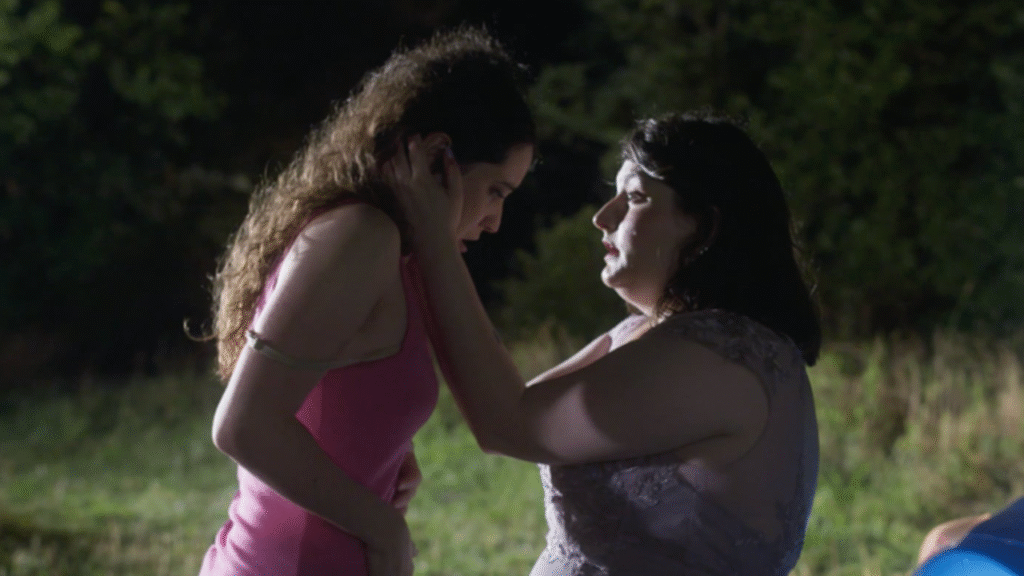
JKH: Exactly. It’s always someone telling on themselves when they object to it.
Jamie Alvey: Yes, like people saying, “No parents would let their kids do this.” I’m like, “Brock Turner’s dad shielded him.” That’s literally me responding to that. Your Husband Was a Good Man deals with mass shootings. I wanted to challenge myself because so few films tackle the aftermath of that trauma in a sensitive way. Everything’s about the “good guy with a gun” fantasy, but that’s not real. The aftermath, how grief affects everyone differently – that’s more interesting to me. Your Husband Was a Good Man let me process my own grief. Like when I realized my grandma wouldn’t see any of this. I was in such a vulnerable place writing it.
I’m working on The Second Circle, which is pre-production. It’s inspired by Dante’s Inferno, an interpretation of Paolo and Francesca. It’s definitely going to be a tearjerker.
JKH: Oh, that’s going to hit me straight in the face. [Laughs.]
Jamie Alvey: [laughs] Everyone who’s read it has cried. My SFX artist from Your Husband Was a Good Man—she’s back. She’s so excited. She told me, “Jamie, this is going to be so good.”
JKH: “She’s back!” That sounded so threatening in the best way. [Laughs.] Where can people watch Your Husband Was a Good Man now?
Jamie Alvey: It’s playing at Chattanooga Film Fest June 20th–28th. I was so excited to get into Chattanooga [because] it was one of my white whale fests. They’re also streaming it virtually. It’s playing in person at Horror Hotel in Cleveland on Sunday, June 22nd. I’m excited for everyone to see it.
Bystanders is available on on Fandango at Home, Plex, Tubi, and VOD.
